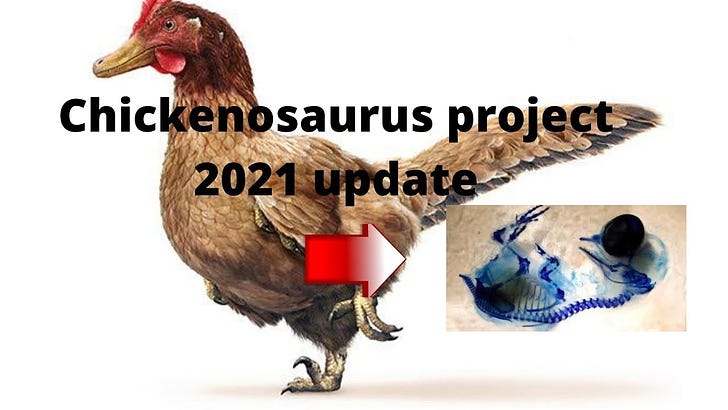
Original Blog Blurb from 2012
Though I didn't say so during the episode, thanks to Tom Drury for our musical tag. Haven't used it in a while, but its chant-like vocal goodness seemed particularly appropriate today.
You see, today’s episode concerns myth, in the Joseph Campbell sense of the word, of stories that tell us where we come from, where we’re going, and how to get there. Tolkien wrote myths. Superhero comics are full of mythic language, mythic images. But for my money, no one writer of the 20th century came closer to creating a complete and original mythology than H.P. Lovecraft. Noone has influenced more artists, in more genres. Of course, no one in his right mind would want to live in his universe (currently portrayed nowhere better than Lovecraft is Missing). His evils are never defeated, only escaped or delayed. But that’s precisely my point. The Old Testament was not a place I’d want to live, either.
Too much of our modern religion is just wish fulfillment. (Someone just drove by with a Christmas tree tied to the roof of a minivan – hah – love it!) Our Christmas is not about the death of the old year and the birth of the new. It’s about getting more and better presents than last year.
We watched Brave again for family movie night on Thanksgiving. It’s a good movie, full of good messages, but there’s no real suspense, because I know ahead of time that everything will be all right. Our heroine will do the right thing. She won’t make the same mistake that old Mordu made, and her mother will be fine. That’s not even a spoiler; you knew that, too. That’s why (agreeing with Cathy Russell from a part of the conversation that I cut) the Bible is awesome – as a historical and political document. The Jews lose, again and again (they should just change the first letter to L). It’s mythic, moral journalism. The miracles and special effects are totally not the point.
You won’t hear me contradicting Cathy Russell in her view that Evolution’s Arrow is flying straight and true towards greater compassion and universal love, and that’s not just me being polite. She’s not wrong; that impetus is there, some of the time. But Lovecraft is not wrong, either. There is also decay, corruption, selfishness, madness, death. Optimism causes problems as well as curing them. Watch the Dust Bowl, fer Pete’s sake.
REFERENCES
The Microbe Zoo at the Digital Learning Center for Microbial Ecology
http://commtechlab.msu.edu/sites/dlc-me/zoo/
Dr. Russell's current site, the Epic of Evolution
http://epicofevolution.com/home
Yin & Yang, symbols of not either/or but both/and
practical: http://taoism.about.com/od/visualsymbols/p/YinYang.htm
esoteric: http://mor.phe.us/writings/Yin-Yang.html
Decision fatigue, in order of decreasing laziness and increasing detail:
Video:
Reportage:https://www.nytimes.com/2011/08/21/magazine/do-you-suffer-from-decision-fatigue.html?pagewanted=all
Book: https://www.barnesandnoble.com/w/willpower-roy-f-baumeister/1100482735
Research papers: http://www.psy.fsu.edu/~baumeistertice/index.html
Updates from 2022
Sadly, according to TV Tropes, the author of Lovecraft is Missing, animator Larry Latham, died, and his website has been replaced by an arts & crafts site (oh, the indignity! HPL could undoubtedly relate.). Currently I can’t even get the archived page from the Wayback Machine to load.
Since 2013, Big History has become a thing, a better funded version of what Cathy Russell was doing with her Epic of Evolution site. I used Big History as an opener, an introduction, in my Alien Ecosystems courses this summer, along with Thomas Berry’s Universe Walk, to try and give the students a sense of the time scales we were working on. The Cosmic Calendar from the Neil de Grasse Tyson’s reboot of Cosmos is a similar tool.
I’ve also been using an animated series from MTV’s Liquid Television in the 90s called The Maxx as a metaphor for mental illness with my neuroscience enrichment classes. It’s a dense, confusing plotline that jumps around between conscious states and timelines, told partly in misremembered flashbacks, using a dizzying array of art styles and pulp fantasy tropes. It also drops a lot of pop psychology references, which is extremely convenient for my purposes. Since mental illnesses are mostly exaggerated versions of behaviors that we all do, we get a lot of educational mileage out of trying to diagnose the characters, to come to some kind of consensus about where the dividing lines of dysfunction are. Since the characters are all fictional, it’s a no harm / no foul kind of situation.
The Maxx is also full of commentary on its own time period in the industry, a time of increasing awareness that girls read comics too, among other things. I grew up with comics — they were really my first nerd dialect — so I’ve always loved introducing other people to the medium, revealing to them that whatever their thing is, there’s a comic for that. This year I took that a step further by digging out several bags of Free Comic Book Day samples that my kid left behind at our house and giving them away to my students as mementos of our time together.
This weekend, hanging around the house nursing a cold, prepping for my final week of class, I’ve been watching the Netflix documentary adaptation and extension of Michael Pollan’s book on psychedelics, How to Change Your Mind. It reminds me of both Cathy Russell’s descriptions of her (spontaneous?) mystical experiences in the episode above and of the woeful state of psychiatric medicine today. We spend billions treating symptoms without addressing root causes, or we get distracted by the endless and unproductive nature vs nurture debate:
I’m convinced that madness cannot be divorced from the cultural, social, and psychological matrix within which human beings exist. To deny that social and psychological factors play a major role in the genesis and course of mental illness is to blind ourselves to a mountain of evidence, epidemiological and otherwise, that teaches us that the environment powerfully matters.
Treating the biological and the social as separate entities is profoundly misguided.
I’m a bit more hopeful than Dr. Scull, quoted above, but I agree that no single medicine, or category of medicines, is going to fix everything.
What will? Comics! Just kidding.
I was, however, delighted to see 2008’s Spectacular Spider-Man animated series rescued from obscurity and re-released on Netflix. It digs way back into the early comics for updated versions of obscure villains like the Enforcers, and it’s way more fun & fancy free than the soapy Avi Arad version from the 1990s. Nothing like bad puns to stimulate the immune system …












Share this post